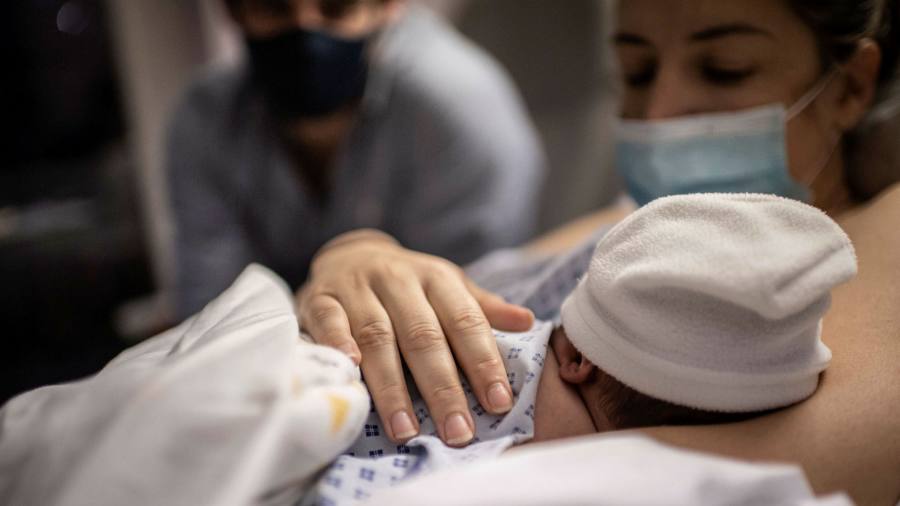[ad_1]
The news of steeply dropping birth rates in Europe, nine months on from the pandemic’s onset, will have prompted some wry humour — “What else is there to do in a lockdown?†But the baby deficit is no laughing matter.
France, Italy and Spain — all hit hard by the spread of the coronavirus last spring — recorded birth numbers in January that were down by double-digit percentages on normal times. The number of babies born during the month, nine months after the early stages of lockdowns, was the lowest it has been in generations.Â
Demographers say the falls are striking but not surprising. Fertility rates tend to follow the economic cycle, with couples more willing to have children when times are good and prospects bright. In the shadow of uncertainty caused by downturns and unemployment, people postpone plans for establishing or expanding families.Â
The current crisis has put additional dampers on the ability — or desire — to become a parent. Lockdowns and fear of contagion have made it that much harder to get together: though we have learned to do many things online over the past year, procreation is not one of them. Marriage rates have fallen even more than birth rates. Even for married and cohabiting couples, making babies has lost its allure, as the idea of lockdown life as a romantic retreat has faded. The mental toll of being constantly cooped up, even — or especially — with a long-term partner, can be a powerful contraceptive.
Is this a problem? That depends, in part, on whether the baby bust is transitory. Successful vaccinations and a return to normal activity could unleash pent-up savings and frustrated consumption desires. In such a “Roaring Twenties†scenario, economic confidence and general optimism could bring about a baby boom more than strong enough to make up for the decline of recent months. Historical experience of earlier crises points in that direction.
But it is far from certain. The pandemic could cast a long shadow of psychological caution, and its economic costs — businesses bankrupted, skills atrophied and jobs lost — could extend over years to come once emergency financial support is phased out.
Even in the short run, the baby bust gives cause for worry. It is a proxy for a deep malaise that stretches far beyond what is captured by the numbers on income and employment. And should it prove long-lasting, it would be a serious issue. Much of Europe already suffers from low birth rates and the ageing population that entails. The problem is partly practical: it makes it harder to sustain the welfare state as the ratio of workers to elderly dependants falls. But more than that, a society where people cease to have children is often one in palpable decline, where growth stagnates and dynamism has dried up.
In contrast, among high-income countries at least, higher birth rates tend to go with more optimism and keenness to plan and invest in the future. The challenges of expansion are far preferable to those of decline.
Policies can make a difference. In the short run, more decisive economic policy to shorten downturns and extend upswings should make couples more confident about having children. Over time, states that share the cost of childcare, offer parental leave, and support mothers to return to work tend to encourage higher birth rates — families have especially struggled with school closures.
Economic policymakers should, therefore, see the fertility drop as an additional call to action, to fully power and secure a post-pandemic recovery. Erring on the side of excess could boost animal spirits in more than one sense.
[ad_2]
Source link





